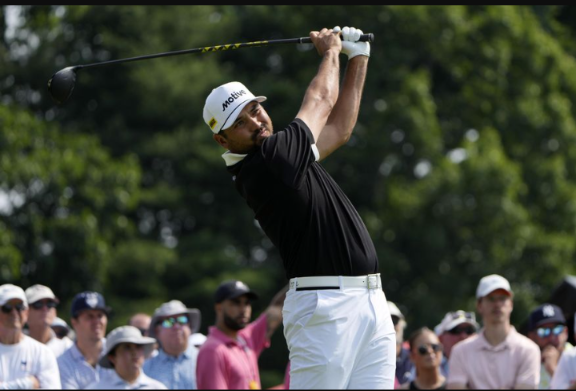If Jason Day could turn back the clock eight years, he’d have a very candid conversation with himself. The Australian golfing star, who was once world No.1, had just clinched a PGA Championship and a Players trophy. But he chose not to represent Australia at the 2016 Rio Olympics.
“It was an easy decision for me back then,” Day told Australian media, including Wide World of Sports, on Friday morning. “Looking back, I’d advise myself to take a step back, really consider it, and represent Australia.”
On Friday, Day was announced as one of four golfers representing Australia in Paris next month. He will partner with rising star Min Woo Lee, while Minjee Lee and Hannah Green will compete in the women’s events.
For Day, a 2015 major champion, this Olympic appearance has been a long time coming. He was at his peak and ranked No.1 when he declined to wear the green and gold in Rio. Since then, he has faced a series of professional and personal challenges.
A severe run of injuries caused Day to plummet from No.1 to No.178 in just five years. Off the course, his mother was diagnosed with lung cancer in 2017 and passed away in March 2022. His father had died of stomach cancer when Day was only 12.
As Day’s career nosedived, many pundits wrote him off. However, in the past 18 months, he has made a remarkable comeback, climbing to No.27, the highest-ranked Australian male golfer. Lee, 25, is next at No.36, with 2013 Masters champion Adam Scott at No.59.
Reflecting on his decision to accept the Olympic invitation this time, Day said he wouldn’t let the opportunity slip by again. “In 2016, I was just coming off a Players Championship win and was No.1 in the world. I was burnt out physically and mentally,” he said. “I was preparing for the FedEx Cup, and with the Olympics timing, we were also trying for another child.”
Day admitted that the inclusion of golf in the Olympics felt strange to him, as he never grew up with the sport being part of the Games. “The media asked if I was excited about the Olympics, but it was hard to feel a certain way when you never thought golf would be part of it,” he said. “It wasn’t that I didn’t want to represent Australia; it was about timing, family, and the Zika virus in South America.”
While Day doesn’t regret his decision, he now believes he should have competed. “I was playing well and could have had a shot at a medal,” he said. Professional golfers can earn millions in prize money, which often overshadows the prestige of the Olympics for them. Day himself has earned over $60 million since joining the PGA Tour in 2008.
However, Day’s perspective has shifted, and he now sees an Olympic medal as a significant and realistic goal. “People sacrifice a lifetime of hard work to represent their country at the Olympics, and I took it for granted,” he said. “I’m grateful for the chance to represent Australia now.”
